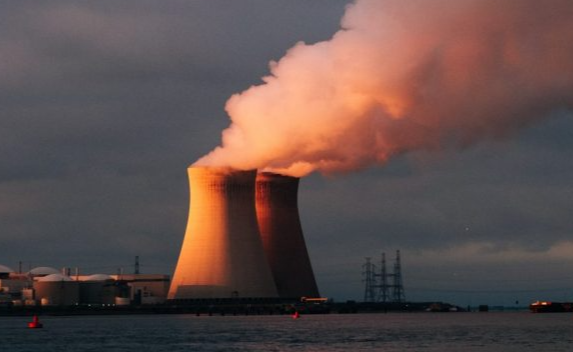Why is Germany phasing out nuclear power? Why end nuclear power now?
Overall, renewables now prevent carbon emissions better than nuclear power, as physicist Amory B. Lovins, an adjunct professor of civil and environmental engineering at Stanford University, concluded in a Bloomberg op-ed: "Renewables increase supply, displacing as much carbon every 38 hours as nuclear emits in an entire year."
06. How can Germany achieve net zero emissions without nuclear power?
The energy transition in Germany's power sector has been transformed into a comprehensive plan to decarbonize the entire economy and achieve net zero greenhouse gas emissions by 2045. With nuclear power and coal fading out of sight by the end of the decade, the new government - sticking to the previous administration's climate targets - is focusing on the growth of renewable energy. The goal is for renewables to account for 80% of electricity demand by 2030 (this is expected to grow). Several "German net Zero" studies have shown that a system based on renewable energy is possible.
The government acknowledges that a fleet of flexible (and hydrogen-ready) natural gas plants is needed to run a stable power system. According to calculations by research institute EWI, 21 GW of lignite capacity and 25 GW of hard coal capacity will be shut down between 2019 and 2030. According to the German energy industry association BDEW, existing excess capacity, new flexibility options and efficiencies, and increased renewable energy capacity will mean that not all of this controllable power plant capacity will need to be replaced. "But the early phase-out of coal means we will need an additional 17 gigawatts of gas-fired capacity," said Kerstin Andreae, head of BDEW. That capacity can't run 24/7. Instead, it will be used during times of peak demand or when there is little wind or sunshine.

When there is less wind and less sunshine, Germany will have to tie itself more closely to its neighbors to exchange (renewable) electricity. It will need to upgrade its power grid. To supply power stations and industry, large amounts of hydrogen will be needed and imported.
07. Why did Germany not choose an energy system with both renewable and nuclear energy?
Nuclear energy advocates describe the technology as a reliable source of energy that can help secure supplies when wind and sunlight are low. "We need reliable, round-the-clock energy to complement renewables," James Hansen, a climate scientist at Columbia University, said while attending a pro-nuclear climate demonstration in Berlin.
But German energy experts have expressed doubts about whether nuclear power can best complement volatile renewables. At the same time, most of France's nuclear power plants are out of service in the summer of 2022 due to low river levels and delays in maintenance works, casting doubt on the unshakable reliability of nuclear reactors. "A climate-friendly power system dominated by weather-dependent wind and solar farms requires a lot of flexibility to balance fluctuating supply with fluctuating demand. Nuclear power plants are technically and operationally designed for as stable a production as possible. This is the exact opposite of what wind and solar need as partners, "said Rainer Baake, a former state secretary at the Ministry of Energy.
08 Will Germany rely on importing (nuclear) electricity from abroad?
Critics say Germany's decision to abandon nuclear energy is hypocritical because it will continue to accept nuclear power from France or Belgium. Germany has power cable connectors with its European neighbors and has been a net exporter of electricity for many years. In addition to nuclear and coal generation, Germany also accounts for a growing share of renewable power generation, and buyers in Europe's internal electricity market like to source renewable power generation because it is cheap. As nuclear and coal power are withdrawn, Germany will lose some of its excess installed capacity and import more electricity from neighboring countries, which also have a growing share of renewables, but it will not be alone. Over the past few years, France has imported a large amount of electricity from Germany to keep its nuclear power system stable.
- ABB
- General Electric
- EMERSON
- Honeywell
- HIMA
- ALSTOM
- Rolls-Royce
- MOTOROLA
- Rockwell
- Siemens
- Woodward
- YOKOGAWA
- FOXBORO
- KOLLMORGEN
- MOOG
- KB
- YAMAHA
- BENDER
- TEKTRONIX
- Westinghouse
- AMAT
- AB
- XYCOM
- Yaskawa
- B&R
- Schneider
- Kongsberg
- NI
- WATLOW
- ProSoft
- SEW
- ADVANCED
- Reliance
- TRICONEX
- METSO
- MAN
- Advantest
- STUDER
- KONGSBERG
- DANAHER MOTION
- Bently
- Galil
- EATON
- MOLEX
- DEIF
- B&W
- ZYGO
- Aerotech
- DANFOSS
- Beijer
- Moxa
- Rexroth
- Johnson
- WAGO
- TOSHIBA
- BMCM
- SMC
- HITACHI
- HIRSCHMANN
- Application field
- XP POWER
- CTI
- TRICON
- STOBER
- Thinklogical
- Horner Automation
- Meggitt
- Fanuc
- Baldor
- SHINKAWA
- Other Brands




































































































































